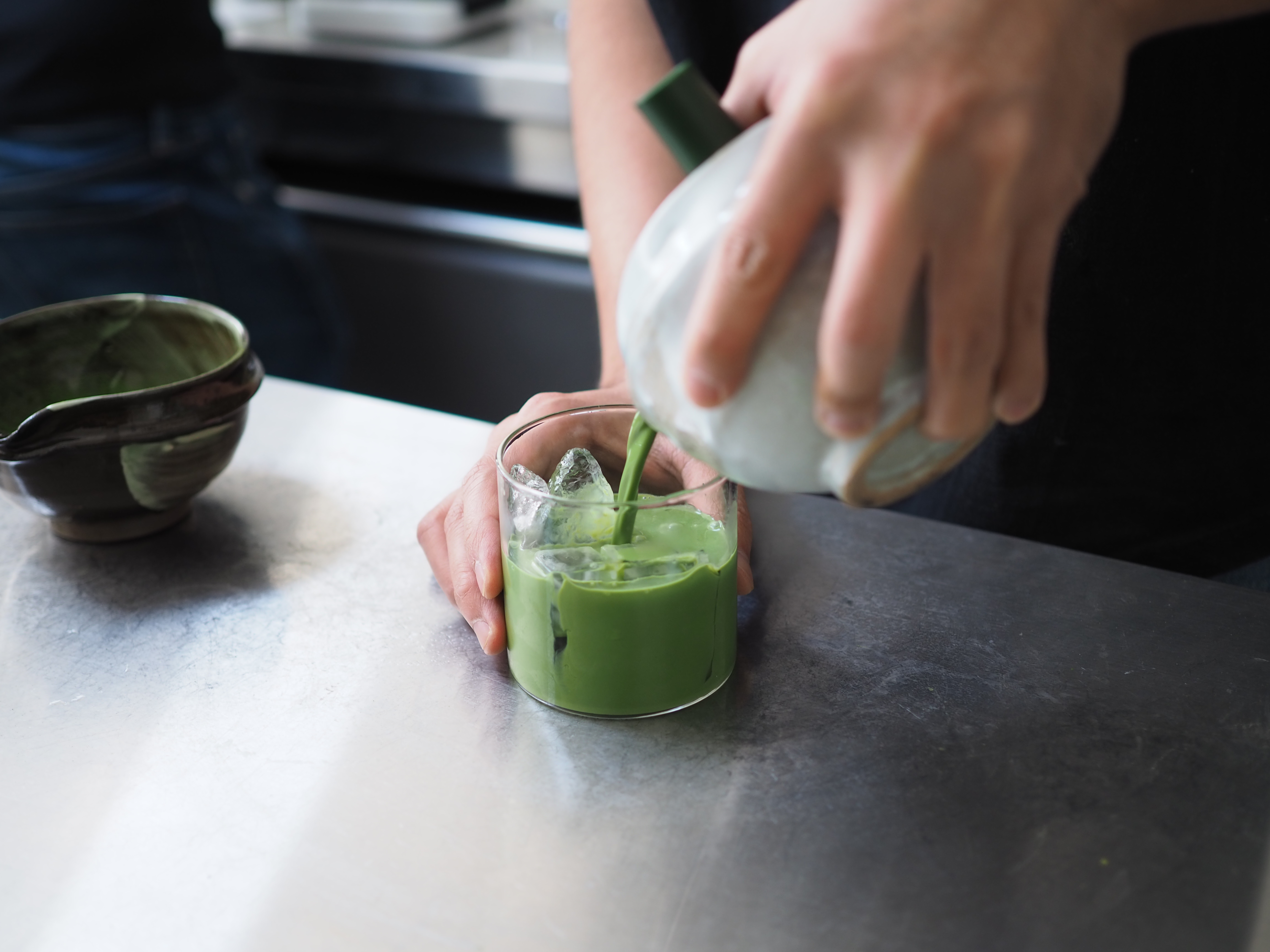Advertisement
10 Reasons to Make Matcha a Part of Your Day
This gorgeous green powder can brighten your routine with a multitude of benefits

1. Gives a non-jittery energy boost
Matcha has been enjoyed in Japan for hundreds of years. Among the country’s most culturally significant beverages, it is the centerpiece of a traditional Japanese tea ritual, called chanoyu.
In recent years, many North Americans have taken note of matcha’s benefits for body and mind, welcoming it into their diets in a wide variety of ways: drinking it as a beverage and including the vibrant green powder in smoothies, baked goods, soups, ice cream, and other recipes.
If you’re on the fence about giving it a try, here are 10 reasons to embrace the magic of matcha.

Matcha is made from the ground tea leaves of Camellia sinensis—the same plant used to make green, black, white, and oolong teas. The leaves contain both caffeine and an amino acid called L-theanine. While these substances boost alertness, L-theanine prevents the jitters you may experience when you consume other sources of caffeine, like coffee. This is because L-theanine reduces stress responses in humans, creating feelings of calm and softening the sometimes-harsh effects of caffeine.
2. Powerhouse of antioxidants

Tea leaves are known for their antioxidant properties, thanks to their high concentrations of catechins, including epigallocatechin gallate (EGCG). Unlike other tea, which is brewed by soaking the leaves and removing them before consumption, matcha is made by grinding whole leaves into a fine powder. For this reason, matcha offers three times more EGCG than steeped green tea and has the highest antioxidant potential of any type of tea.
3. Good for your brain

Matcha’s high antioxidant and anti-inflammatory effects can offer protection for your brain, with studies suggesting that it can help slow the aging of the brain and may ward off Alzheimer’s disease. Research also shows that the EGCG, L-theanine, and caffeine in matcha can increase cognitive performance, and that drinking matcha regularly can boost attention and memory.
4. Supports heart health

Drinking tea on a regular basis can help protect against cardiovascular disease, so adding matcha into your daily routine is a great way to support your heart health. The EGCG in matcha can decrease oxidative stress and inflammation, repairing and protecting heart muscle. Consuming matcha can also help you lower LDL cholesterol levels, which can reduce the chance of heart attack and stroke.
5. Liver protector

Catechins contained in matcha offer protective effects for liver health. Research suggests that EGCG is the main catechin in tea leaves responsible for reducing liver oxidation stress and inflammation associated with liver disease development. Caffeine has also been shown to offer anti-inflammatory and antioxidant effects in the liver, reducing fibrosis (scarring) and risk of non‐alcoholic fatty liver disease.
6. Revs up your metabolism

Matcha can be a healthy and delicious addition to your routine to help stimulate your metabolism and support weight management. Studies show that including matcha in your diet on a regular basis can improve your body’s metabolic response when you exercise by boosting fat oxidation. This benefit is believed to come from matcha’s caffeine and EGCG contents.
7. Strengthens immunity

Sipping on matcha tea gives you immune-boosting flavonoids, including rutin and quercetin, as well as more than double the amount of vitamin C than other types of tea. Vitamin C helps enhance the function of infection-fighting white blood cells, while quercetin and rutin support the immune system through their anti-inflammatory and antiviral properties. Rutin also helps to strengthen the power of vitamin C by slowing its oxidization and allowing it to work more effectively.
8. Improves mood and well-being

If you’re feeling a little blue, you may want to add a little green matcha to your life to benefit from its mood-boosting properties. The L-theanine in matcha works as a relaxing agent, affecting dopamine and serotonin levels in the brain to improve feelings of well-being and reduce anxiety. Matcha’s caffeine content can also increase dopamine to improve mood.
9. Makes your skin glow

Staying hydrated is a crucial step to glowing skin, but why not supercharge your beautifying-fluid intake with a little matcha? Catechins in matcha have been linked to anti-aging and protective effects in the skin, including a reduction in wrinkles, roughness, discoloration, and sun damage. Research also suggests that the polyphenols found in matcha can be effective in reducing the skin’s sebum production to prevent acne.
10. An easy daily addition

Whether you’re blending matcha powder into a tea using hot water and a traditional bamboo whisk—known as a chasen—or whipping it up in a tasty cake, matcha is both easy to prepare and include in a wide range of recipes. You can find some great matcha-infused recipes here on alive.com, making it deliciously simple to incorporate this benefit-rich powder into your daily life.





